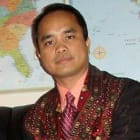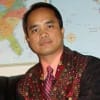commentary Commentary
Commentary: Two freed journalists and the secret role Aung San Suu Kyi might have played
Wa Lone and Kyaw Soe Oo were pardoned and released from prison yet unfair scorn has been poured on State Counsellor Aung San Suu Kyi, says Dr Nehginpao Kipgen.
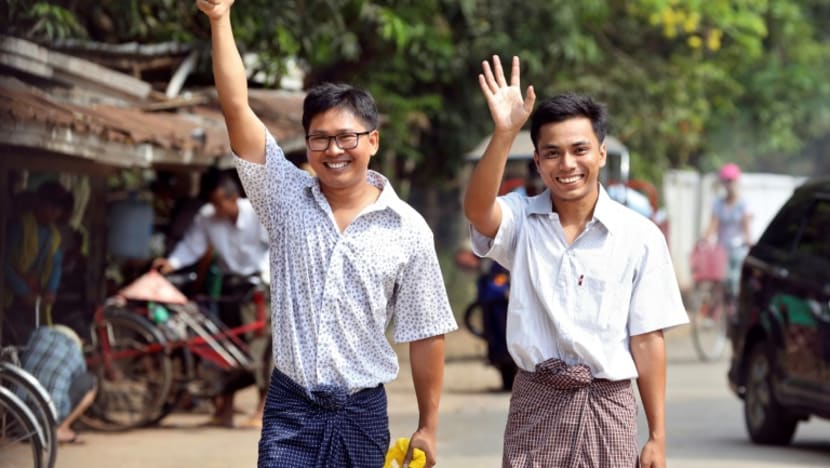
Reuters journalists Wa Lone (left) and Kyaw Soe Oo were freed after a presidential amnesty. (Photo: AFP/ANN WANG)
NEW DELHI: On Tuesday (May 7), two Reuters journalists – Wa Lone, 33, and Kyaw Soe Oo, 29 – were released from Insein prison after spending more than 500 days behind bars, along with thousands of other prisoners, after being pardoned by President U Win Myint as part of the country’s New Year celebrations, which began on Apr 17.
The journalists were convicted in September last year by a district court judge in Yangon and subsequently sentenced to seven years in jail.
The case raised huge questions about Myanmar's treatment of the press and sparked a massive outcry around the world, from government leaders, human rights advocates and the media fraternity.
Since their release, there have been two major prevailing opinions. The first is a cynical view that the journalists’ release is a sign Myanmar has finally cracked after coming under huge international criticism but the biggest challenges lie ahead.
Cynics say the amnesty granted was short-lived good news that do not address the gross injustice and assault on the press to begin with, and that unwavering international pressure is needed as freedom and progressiveness in the country remain elusive.
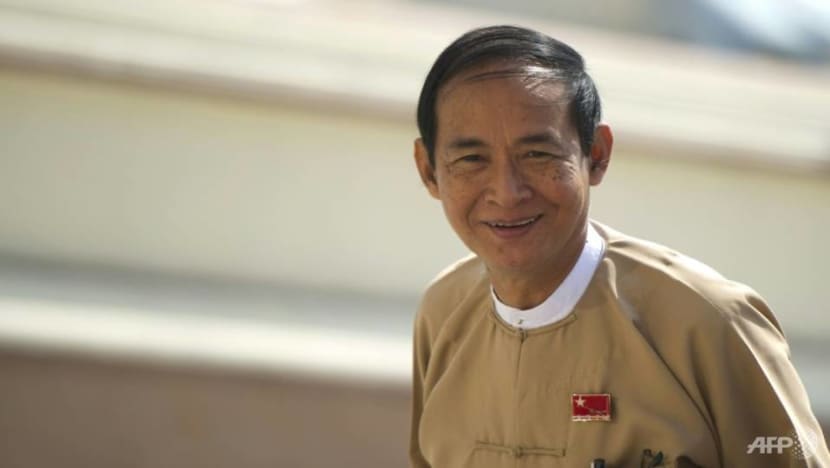
READ: Key facts about Reuters reporters Wa Lone and Kyaw Soe Oo
The second is a more optimistic take that their freeing heralds a new approach by the Myanmar government, and should be welcomed as a show of good faith that the country is committed to democratic transition and is on the right path in its journey towards continued reforms.
WHAT WAS AUNG SAN SUU KYI’S ROLE?
In these two trains of thought, the role of Aung San Suu Kyi and her National League for Democracy (NLD) government has been largely overlooked by most analysts, apart from a cursory castigation for their relative silence on the matter. A few continue to paint them as complicit in the Rohingya refugee crisis.
Yet, in her comment on the case last September at the the World Economic Forum in Hanoi, Aung San Suu Kyi had unequivocally clarified that the jailing of two journalists had nothing to do with the freedom of expression and there was nothing stopping them from appealing their prison sentences, in line with the rule of law and the principle of due process.
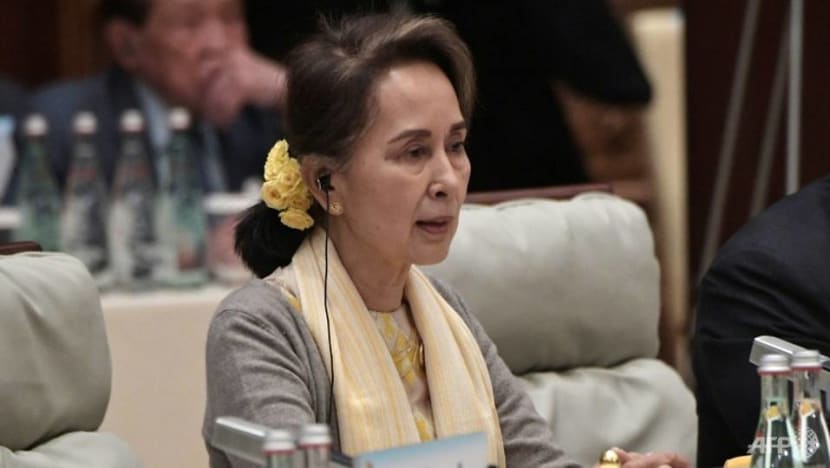
Then US Ambassador to the United Nations Nikki Haley had unsurprisingly said: “First, in denial about the abuse the Burmese military placed on the Rohingya, now justifying the imprisonment of the two Reuters reporters who reported on the ethnic cleansing. Unbelievable.”
US State Department spokeswoman Heather Nauert had added that:
The fact that those journalists were convicted despite testimony by police that they were ordered to frame those journalists, that in our view raises serious concerns about the judicial independence and the fair trial guarantees they are supposed to have in that country … We continue to urge the government of Burma to take action immediately to correct this injustice.
The conclusion often drawn is that Aung San Suu Kyi had numerous opportunities to intercede for the two journalists but she was unhelpful, evasive and refused to act. The assumption was that she had to act swiftly right away but would that have been a smart move?
THE REALITY FACING THE STATE COUNSELLOR
The reality is that the State Counsellor faced immense challenges in getting those journalists freed and surely cannot be seen breaking ranks with Myanmar leaders, and risk her losing credibility with her people, no matter what her intent might have been.
READ: Freed Myanmar journalists a symbol of Suu Kyi's tarnished image
Aung San Suu Kyi has to tread a fine line not to aggravate the military, with whom the civilian government shares power with under the 2008 constitution, on a case of great sensitivity since it involved the military punishing soldiers of their own who had taken unspeakable action.
At the time of their arrest, the two reporters were investigating the killing of 10 villagers from the Muslim Rohingya minority by the Myanmar security forces, and the Myanmar military has confirmed it has taken action against them.
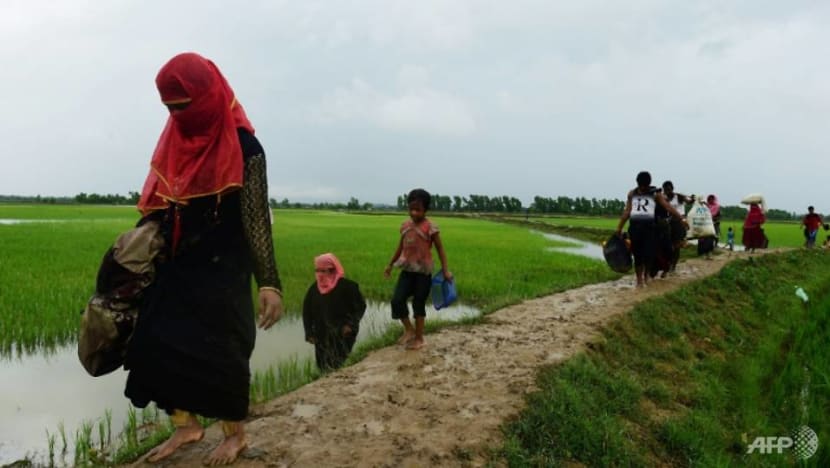
READ: Old wounds, fresh denial in Myanmar over the Rohingya, a commentary
It was an extremely delicate matter where one wrong move could wipe any chance she might have to resolve the issue.
This was made all the more complicated because there was alleged direct involvement by the military and police top brass. Whistleblower Police Captain Moe Yan Naing had testified that a senior officer had ordered police to trap the journalists.
The best option might have been for her to let the case take its own course through Myanmar’s legal system without interference or foreign influence. Myanmar’s sovereignty over a matter of national security had to be maintained.
There was nothing stopping her from intervening at a later stage after all options have been exhausted. After all, she surely would have calculated that she could always play her trump card – which she might have done when a sweeping presidential pardon was given.
While the president is constitutionally head of state and government, there is ample evidence that she rules “above the president”, a claim she has made since before the 2015 general elections.
All things considered, there is reasonable grounds to believe that the two journalists were pardoned and released at the behest of the office of the State Counsellor. There is no denying that Myanmar has some way to go in its winding path towards democracy but this case should not cause us to lose heart in the country or its State Counsellor.
Dr Nehginpao Kipgen is an Associate Professor, Assistant Dean (International Collaboration) and Executive Director of the Center for Southeast Asian Studies, Jindal School of International Affairs, O P Jindal Global University. He is the author of three books on Myanmar, including Democratisation of Myanmar.








